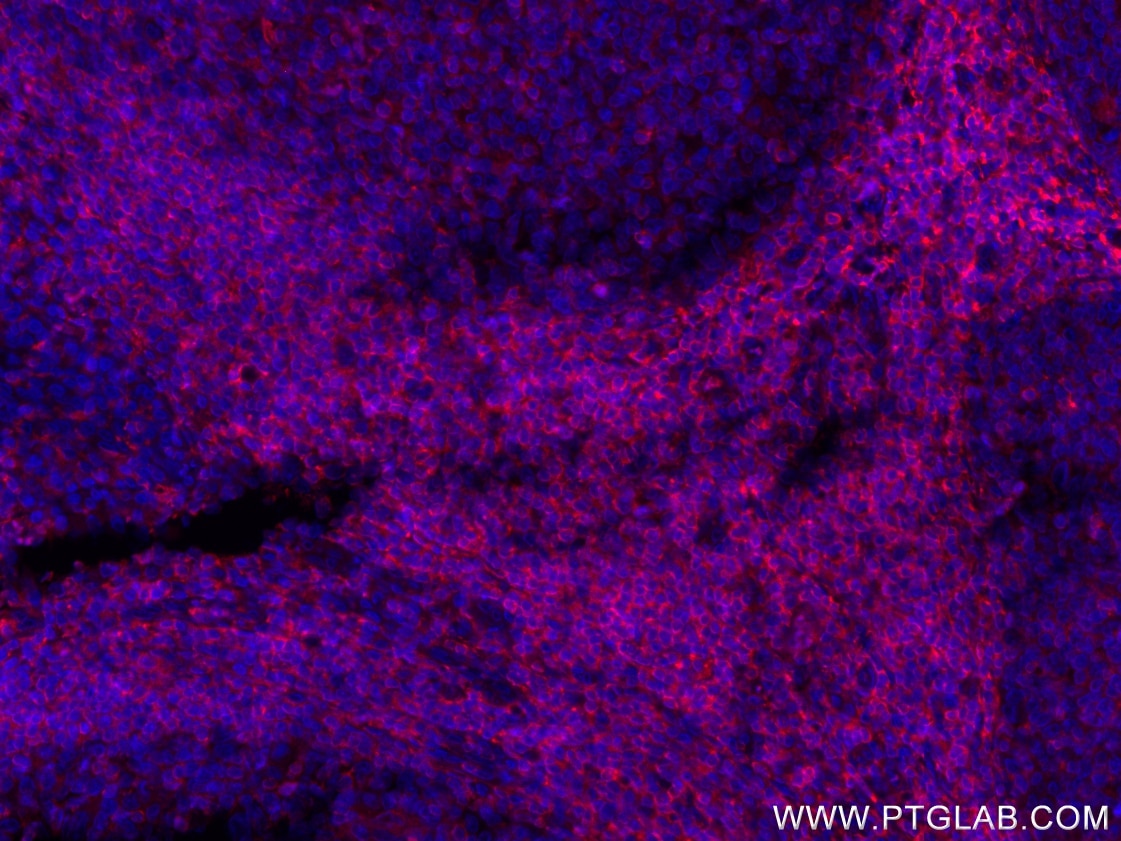Tested Applications
| Positive IF-P detected in | human tonsillitis tissue |
Recommended dilution
| Application | Dilution |
|---|---|
| Immunofluorescence (IF)-P | IF-P : 1:50-1:500 |
| It is recommended that this reagent should be titrated in each testing system to obtain optimal results. | |
| Sample-dependent, Check data in validation data gallery. | |
Product Information
CL594-66054 targets ARHGDIB in IF-P applications and shows reactivity with human samples.
| Tested Reactivity | human |
| Host / Isotype | Mouse / IgG2b |
| Class | Monoclonal |
| Type | Antibody |
| Immunogen | ARHGDIB fusion protein Ag9091 Predict reactive species |
| Full Name | Rho GDP dissociation inhibitor (GDI) beta |
| Calculated Molecular Weight | 201 aa, 23 kDa |
| Observed Molecular Weight | 27 kDa |
| GenBank Accession Number | BC009200 |
| Gene Symbol | ARHGDIB |
| Gene ID (NCBI) | 397 |
| RRID | AB_3673497 |
| Conjugate | CoraLite®594 Fluorescent Dye |
| Excitation/Emission Maxima Wavelengths | 588 nm / 604 nm |
| Form | Liquid |
| Purification Method | Protein A purification |
| UNIPROT ID | P52566 |
| Storage Buffer | PBS with 50% Glycerol, 0.05% Proclin300, 0.5% BSA, pH 7.3. |
| Storage Conditions | Store at -20°C. Avoid exposure to light. Stable for one year after shipment. Aliquoting is unnecessary for -20oC storage. |
Background Information
ARHGDIB, also known as RhoGDI2, is a conserved member of the RhoGDI family and plays an important role in cell migrations. It regulates the GDP/GTP exchange reaction of the Rho proteins by inhibiting the dissociation of GDP from them, and the subsequent binding of GTP to them. It is mainly in hematopoietic, endothelial, and epithelial cells. It has been linked to tumorigenesis and metastasis. RhoGDI2 expression is downregulated in several cancer types, such as bladder, lung and lymphoma, but is upregulated in prostate and gastric cancer.
Protocols
| Product Specific Protocols | |
|---|---|
| IF protocol for CL594 ARHGDIB antibody CL594-66054 | Download protocol |
| Standard Protocols | |
|---|---|
| Click here to view our Standard Protocols |



